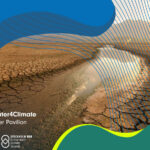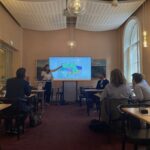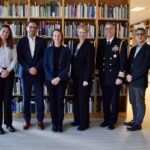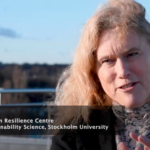Water can play an important role as a catalyst for peace. The work by the 2019 Stockholm Water Prize laureate Dr Jackie King has given the world new tools to achieve this.
In the water community, the Stockholm Water Prize is surrounded by a prestige equivalent to a Nobel or an Oscar. It was therefore with great anticipation many tuned in to hear the announcement of the 2019 winner, presented by SIWI’s Executive Director Torgny Holmgren at a UN event in Geneva last Tuesday.
The choice of South African aquatic ecologist Dr Jackie King as the 2019 Stockholm Water Prize laureate is popular among researchers and practitioners from many countries and several academic fields. As a researcher at the University of Cape Town, South Africa, Dr King has contributed to the understanding of environmental flows and their role for healthy rivers, something that was only relatively recently discovered.
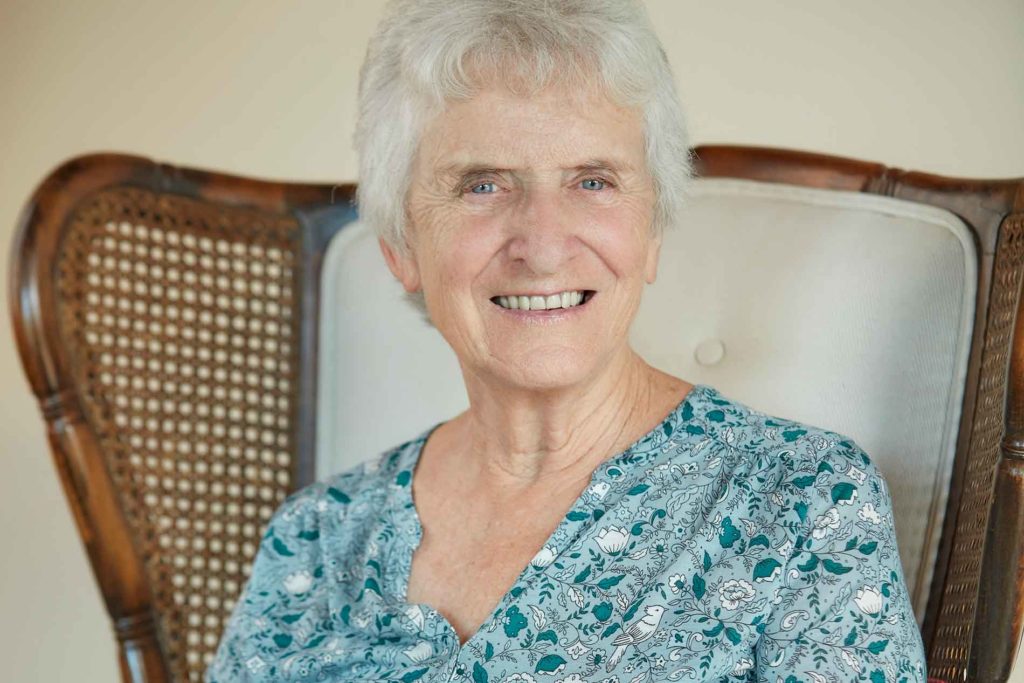
This knowledge is extremely important to decision-makers and planners. Mega-projects such as dams and large irrigation schemes have often led to unintended ecological damage, and it has been difficult for developers to properly assess the risks in advance.
To change this, Dr King and her colleagues, Dr Cate Brown and Dr Alison Joubert, created ecosystem models to demonstrate the ecological and social implications of damming and de-watering rivers. This has enabled objective assessment of the costs of water-resource development that could emerge alongside benefits such as hydropower and irrigated crops.
Governments developing their water resources do not necessarily understand the costs in terms of degrading rivers.
“Governments developing their water resources understand the potential benefits but not necessarily the costs in terms of degrading rivers. We can now show these ecological and social costs at a similar level of detail to the benefits shown by planners. This is a new kind of information, not available until the last few years, that helps governments better understand the trade-offs involved in development as they decide on their preferred future,” Dr King says.
Armed with these new tools, she has for two decades travelled the world and helped governments in more than 20 countries implement them. Not least is she sought after by decision-makers in shared river basins, including basins in regions affected by armed conflicts and political tensions, who want to know the impact of both their own water regulations and that of their neighbours.
Dr King describes this as helping countries understand the limits to how shared water resources can be used, making it easier to assess what is fair and therefore find a basis for collaboration.
The relationship between water and security has long been debated. While it is often expected that increased water scarcity, caused by climate change as well as population- and economic growth, will inevitably fuel competition and conflicts, research shows that water can also be a catalyst for peace and cooperation.
More studies are needed on which factors are key to creating an enabling environment for this, but research from Oregon State University point to risks associated with sudden, unforeseen changes as well as weak institutions. The work of Dr King can lay the foundation for more predictable, transparent and informed decisions that facilitate collaboration and foster peace.
Generating and disseminating knowledge on the benefits and strategies of transboundary water cooperation can help strengthen the enabling environment for collective action. SIWI has taken many opportunities to generate and disseminate knowledge on water cooperation and water diplomacy through its International Centre for Water Cooperation, under the auspices of UNESCO (ICWC). A recent publication is the Special Issue on Water Diplomacy by the Journal of Hydrology, edited by SIWI.
Author: Maria Vink, Director Transboundary Water Management Department


